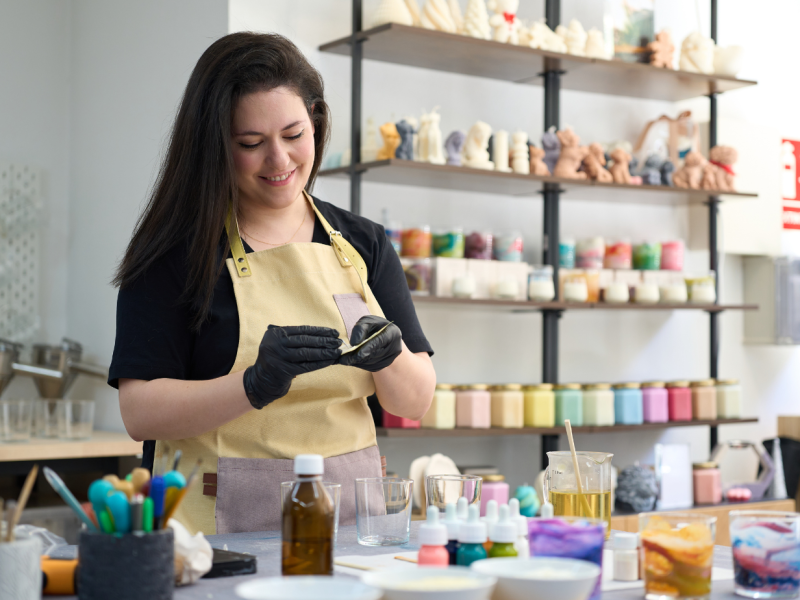When crafting soaps, candles, or any scented creation, every maker dreams of that perfect fragrance throw, balanced, long-lasting, and true to scent. But here’s the truth: not all fragrance oils behave the same, and what works beautifully in one formula might misbehave in another. That’s where small batch testing comes in, your best safeguard against wasted ingredients and frustration.
Every Fragrance Has a Unique Molecular Structure
Each fragrance oil is made up of a distinct blend of aromatic compounds, essential oils, and fixatives, all with their own molecular weights and flash points.
These variations mean that two fragrances with similar names (like Vanilla Bean and Creamy Vanilla) may behave entirely differently once added to wax or soap batter.
For example:
- In cold process soap, certain fragrance components can accelerate trace, cause discolouration (especially vanillin), or even separate.
- In candles, a fragrance’s flash point and molecular weight can affect scent throw, burn quality, and appearance.
So, even when using tried-and-tested recipes, a new fragrance oil can bring its own quirks.
Why Small Batch Testing Saves the Day
Small batch testing means making a mini version of your recipe before scaling up. It allows you to:
- Check fragrance compatibility with your base oils, waxes, or additives.
- Observe how it behaves during curing or burning.
- Avoid costly waste from large-scale batches gone wrong.
Think of it as your creative safety net, it helps you tweak ratios or pouring temperatures before committing to bigger quantities.
Candle Makers: Don’t Skip This Step
In candle making, fragrance load, temperature, and wax type all influence the final result.
Some oils perform beautifully in soy wax but lose strength in paraffin or coconut blends.
Testing 100g or 200g batches ensures you find the sweet spot for each combination before moving to 1kg or 5kg pours.
Soap Makers: Watch for Acceleration & Discolouration
Fragrance oils containing vanillin, citrus notes, or spices can speed up trace or darken the soap.
A small 100g–200g test batch lets you see how your soap behaves before pouring a full loaf, preventing the dreaded soap seize or uneven colours.
At Holistic Emporium, We Encourage Small Batch Testing
Because each maker’s formula, environment, and process are unique, we always recommend small batch testing before committing to full production.
Our fragrance oils are high quality and designed for both soap and candle use, but due to their natural and synthetic blend ratios, results can vary.
Every maker starts with curiosity and a dash of courage — that’s what makes your craft so special.
By testing small and learning how each fragrance behaves, you protect your creativity, your ingredients, and your peace of mind.
At Holistic Emporium, we’re here to supply the scents, the guidance, and the inspiration that help you grow with every pour.
⚠️ Disclaimer
Due to the wide variety of recipes, bases, and methods used, Holistic Emporium cannot be held responsible for product loss or failed batches.
Always conduct small batch tests to ensure compatibility and stability before full production.


